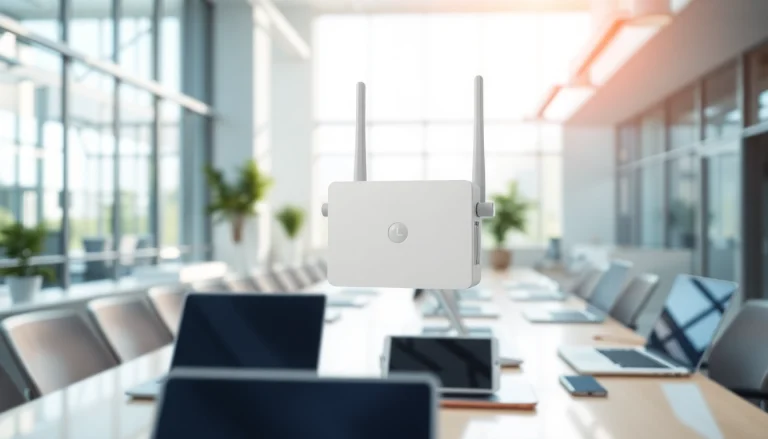
Understanding Site Reliability Engineering Experts
What is Site Reliability Engineering?
Site Reliability Engineering (SRE) is a discipline that combines software engineering with systems engineering to build and run scalable and highly reliable software systems. Developed at Google, SRE aims to ensure that a company’s services are both sustainable and scalable while maintaining a strong focus on user experience. It emphasizes automating operational tasks that were historically performed manually and uses various metrics to define reliability goals.
The Role of Site Reliability Engineering Experts
Site reliability engineering experts are at the heart of implementing and managing SRE practices within organizations. Their primary goal is to maintain service availability and reliability while also providing a fast and efficient response to incidents. This multifaceted role often encompasses the following responsibilities:
- Designing and maintaining production systems.
- Developing automation to improve operational efficiency.
- Monitoring system performance and reliability, often through the establishment of Service Level Objectives (SLOs).
- Responding to incidents and leading post-mortem analyses to learn and improve processes.
- Collaborating with engineering teams to enhance service reliability.
As organizations expand their digital footprint, the need for Site reliability engineering experts becomes crucial. These specialists not only bring technical knowledge but also a strategic mindset that aligns IT goals with business outcomes. For those looking to delve deeper into this field, seeking guidance from Site reliability engineering experts can provide invaluable insights.
Importance in Modern IT Infrastructure
In today’s fast-paced digital landscape, the importance of SRE practices cannot be overstated. Companies increasingly rely on complex software systems and services that need to deliver high availability and performance. With users expecting uninterrupted access and seamless experiences, two critical factors emerge:
- Service Availability: SRE ensures that systems remain operational and accessible. By focusing on reliability, companies can avoid costly downtimes that affect customer satisfaction and brand reputation.
- Performance Optimization: Through the proactive monitoring and analysis of system metrics, SRE experts identify potential performance bottlenecks and implement improvements, ensuring that applications meet user demands efficiently.
Key Skills of Site Reliability Engineering Experts
Technical Proficiencies Required
To excel in the role of a Site reliability engineering expert, a diverse set of technical skills is essential. These include:
- Programming Skills: Proficiency in programming languages such as Python, Go, or Java is fundamental for developing automation solutions that increase operational efficiency.
- System Administration: A deep understanding of operating systems, especially Linux, is necessary for managing servers and environments effectively.
- Networking Knowledge: Competence in networking concepts, including TCP/IP, DNS, and load balancing, is crucial for diagnosing and resolving connectivity issues.
- Cloud Computing Expertise: Familiarity with cloud environments (AWS, Google Cloud, Azure) enables SRE experts to design reliable and scalable applications in the cloud.
Soft Skills for Effective Collaboration
In addition to technical capabilities, soft skills play a vital role in the success of Site reliability engineering experts. These individuals often serve as a bridge between the development and operations teams, making strong communication skills imperative. Key soft skills include:
- Collaboration: The ability to work synergistically with different teams enhances productivity and fosters a unified approach to problem-solving.
- Critical Thinking: An SRE must analyze complex system behaviors and identify root causes effectively, which requires strong analytical skills.
- Adaptability: As technology and company needs evolve, SRE experts must be flexible and willing to learn new approaches and tools.
Essential Tools and Technologies
Site reliability engineering experts utilize a variety of tools and technologies to monitor, manage, and optimize systems. Some common tools include:
- Monitoring Tools: Platforms like Prometheus and Grafana are utilized for real-time monitoring and visualization of system performance metrics.
- Automation Tools: Tools such as Ansible or Terraform enable SRE experts to automate infrastructure provisioning and deployment processes, minimizing manual intervention.
- Incident Management Tools: Systems like PagerDuty and Opsgenie are crucial for incident alerting and management, ensuring that the right personnel are informed promptly during service disruptions.
Challenges Faced by Site Reliability Engineering Experts
Common Operational Difficulties
While the role of Site reliability engineering experts is critical, they face several challenges in the operational landscape. Identifying and mitigating these challenges is essential for maintaining reliability:
- High Complexity: As systems grow in complexity, managing dependencies and ensuring stability becomes increasingly challenging.
- Incident Response Times: SRE experts often face pressure to respond to incidents rapidly, requiring effective incident management strategies and the ability to remain calm under pressure.
- Balancing Feature Development and Reliability: The ongoing conflict between adding new features and maintaining existing systems can lead to compromises in reliability.
Addressing Service Level Objectives
Establishing and adhering to Service Level Objectives (SLOs) is a fundamental responsibility of SRE experts. These objectives set clear targets for system performance and availability:
- Defining SLOs: SRE experts work closely with stakeholders to define realistic SLOs based on user expectations and historical performance data.
- Monitoring SLOs: Continuous monitoring of SLOs enables organizations to assess compliance and identify areas needing improvement.
- Reporting and Feedback: Regular reporting on SLO performance fosters transparency and encourages teams to strive for continuous improvement.
Strategies for Incident Management
Effective incident management strategies are vital for minimizing downtime and ensuring a quick recovery from incidents. SRE experts often implement the following practices:
- Runbooks: Creating detailed runbooks with step-by-step instructions ensures that team members know exactly how to respond to incidents.
- Post-Incident Reviews: Conducting comprehensive post-incident reviews helps teams learn from mistakes, refine processes, and prevent future occurrences.
- Simulation Drills: Regularly conducting incident simulation drills prepares teams for real-world scenarios and improves their response times and efficiency.
Best Practices from Site Reliability Engineering Experts
Implementing Effective Monitoring Solutions
Monitoring serves as the backbone of SRE practices. Implementing effective monitoring solutions involves:
- Setting Key Performance Indicators (KPIs): Identifying and tracking KPIs related to performance, reliability, and user experience is critical for insight into system health.
- Utilizing Dashboards: Visual dashboards provide real-time insight into system performance, allowing teams to act on issues proactively.
- Alerting Mechanisms: Properly configured alerting systems ensure that teams are notified of potential problems before they escalate into bigger incidents.
Creating a Culture of Reliability
A strong reliability culture within an organization can significantly enhance the effectiveness of SRE practices. Strategies to foster this culture include:
- Promoting Collaboration: Encouraging cross-functional collaboration helps integrate reliability into every stage of software development.
- Education and Training: Regular training sessions and workshops keep team members up-to-date with the latest SRE practices and tools.
- Recognizing Successes: Acknowledging and celebrating reliability achievements boosts morale and promotes a shared commitment to reliability.
Continuous Improvement and Learning
Site reliability engineering is not a one-time effort; it requires a commitment to continuous improvement and learning:
- Feedback Loops: Implementing feedback loops across different teams empowers professionals to share insights for continuous enhancements.
- Iterative Processes: SRE experts should adopt iterative processes, regularly refining practices based on performance evaluations and user feedback.
- Staying Informed: Keeping abreast of industry trends ensures SRE experts can leverage new methodologies and technologies to enhance reliability.
The Future of Site Reliability Engineering Experts
Emerging Trends in SRE
The landscape of site reliability engineering is evolving rapidly, and several trends are shaping its future:
- Shift to DevOps: The integration of SRE within DevOps teams is becoming more prevalent, leading to enhanced collaboration and efficiency.
- Microservices Architecture: As organizations adopt microservices, SRE practices are adapting to manage and monitor complex distributed systems more effectively.
- Reliability as a Feature: More businesses are positioning reliability as a competitive differentiator, emphasizing its importance in marketing strategies.
The Impact of AI and Automation
Artificial Intelligence (AI) and automation are poised to revolutionize site reliability engineering practices:
- Predictive Analytics: Leveraging machine learning algorithms can enable proactive incident management by predicting failures before they occur based on historical data.
- Automated Incident Response: As automation tools evolve, they can take over standard response actions to incidents, reducing human intervention and increasing response speed.
- Enhanced Monitoring: AI-driven monitoring solutions can analyze vast sets of data in real time, providing deeper insights into system performance and potential issues.
Preparing for Future Challenges
To remain relevant, site reliability engineering experts must be prepared for future challenges such as:
- Increasing Complexity: As systems become more integrated, SRE experts need to develop more sophisticated strategies to manage and monitor interconnected services.
- Scalability Concerns: As businesses grow, ensuring that systems can scale without compromising reliability will be paramount.
- Cybersecurity Threats: With rising threats to cybersecurity, SRE experts must include security considerations in their reliability frameworks to protect systems and data.





